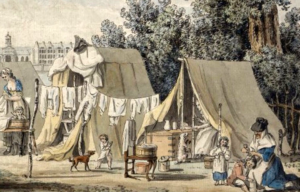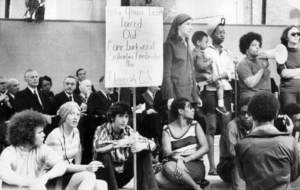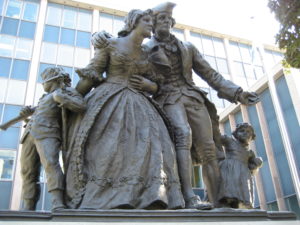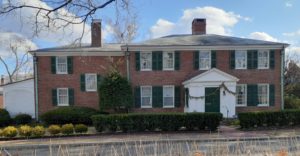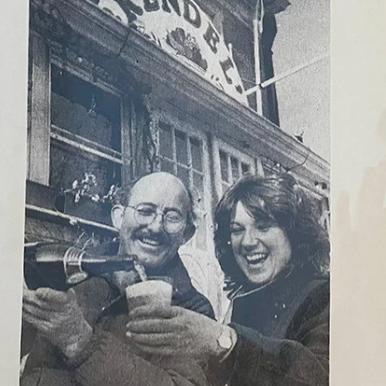
Harvard Square institution was party to a landmark Supreme Court decision
By Laura Roberts, 2025
With First Amendment issues in the news and on our minds, it is interesting to recall how a venerable Harvard Square restaurant was party to a landmark Supreme Court decision on the “Establishment Clause,” which reads: “Congress shall make no law respecting an establishment of religion, or prohibiting the free exercise thereof.”
Sue and Herbert Kuelzer opened Grendel’s Den in the former Pi Eta Club off Winthrop Square, part of Cambridge’s Harvard Square, in 1971. The restaurant started in the basement and in 1974 expanded, taking over the main floor of the building. In 1977, the owners applied for a liquor license. The Holy Cross Armenian Catholic Parish at 100 Mount Auburn St. (where Peet’s Coffee is now), which shared a 10-foot-wide alley with the restaurant, objected, arguing that there were already too many establishments with liquor licenses in the square. The church was relying on a Massachusetts law that required businesses within 500 feet of a church or school to get approval from the church or school before obtaining a liquor license. Grendel’s Den sued, arguing that the law unconstitutionally gave religious institutions control over a governmental function.
Many of Massachusetts’ liquor laws are based on “blue laws,” designed to prevent people from drinking on Sundays – even after the end of Prohibition. Older readers will remember when you could not buy alcohol from a retail store on Sunday and bars had to open late in the day. You still cannot buy alcohol before 8 a.m. most days and 10 a.m. Sundays. Some nearby towns, including Arlington and Belmont, were “dry” until 2006 and 2007, respectively.
The 500-foot law evolved from Section 16C, introduced in 1954, which prohibited any establishment that close to a church or school from having a liquor license at all. The absolute ban was amended in 1968 and 1970 to allow licenses without a formal objection.
Larkin v. Grendel’s Den Inc. (1982) addressed whether Section 16C violated the constitutional principle of separation between church and state. Laurence Tribe, now the Carl M. Loeb university professor emeritus at Harvard Law School, argued the case before the Supreme Court (one of 36 cases he has argued there). He reflected on the case in a 2022 interview.
The court ultimately ruled the law was unconstitutional, reinforcing the idea that religious institutions cannot wield governmental power. In the 8-1 decision, chief justice Warren Burger, writing for the majority, found that the law impermissibly delegated governmental authority to religious institutions. This decision is historically significant because it clarified the limits of church involvement in government affairs and reinforced the secular nature of U.S. lawmaking.
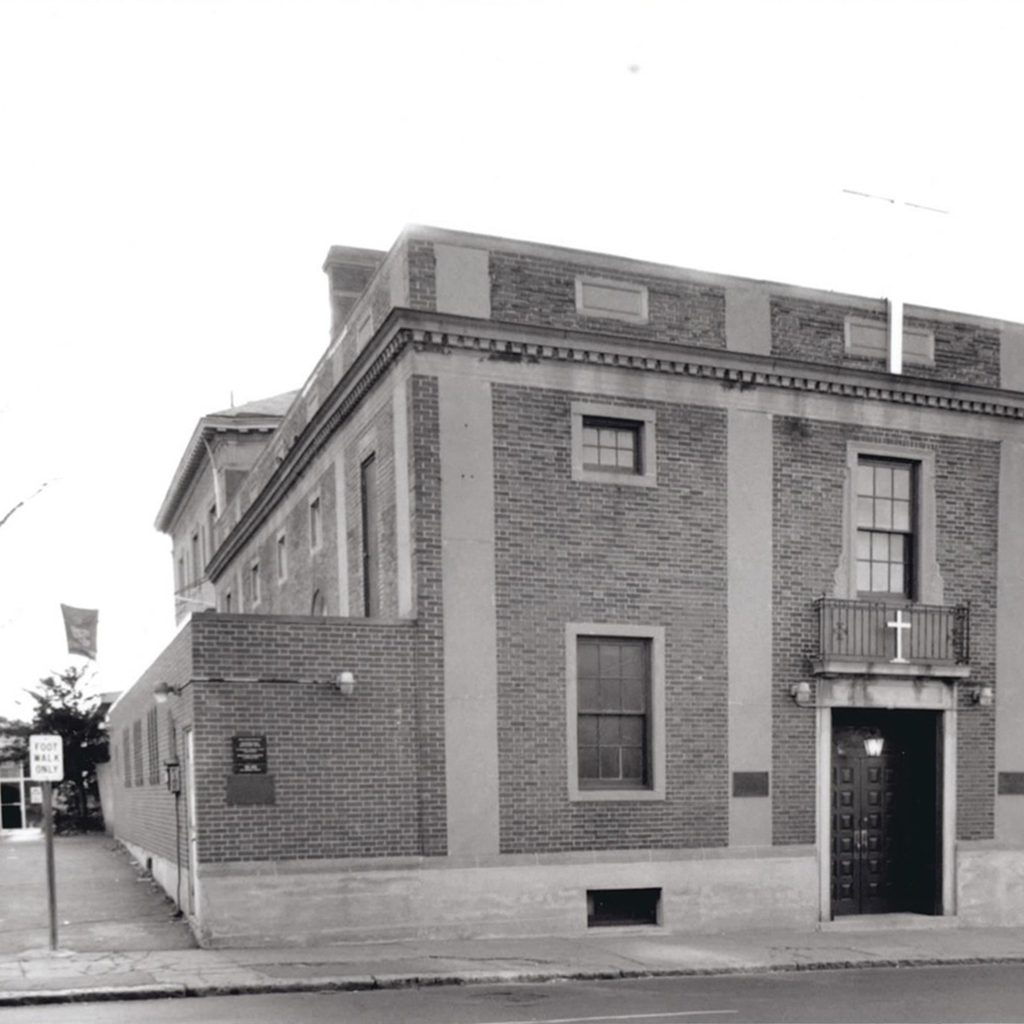
The ruling also noted that allowing churches to control liquor licenses could lead to religious discrimination. For example, a church might deny a liquor license to a business for religious reasons, even if there were no secular concerns. This would grant religious groups undue influence over businesses and create a precedent where religious institutions could wield state power in other regulatory areas.
Justice William Rehnquist was the dissenter, arguing that the law served a valid secular purpose – allowing churches to preserve the character of their neighborhoods.
The ruling in Larkin v. Grendel’s Den Inc. has had lasting effects on constitutional law, particularly in reinforcing the principles of religious neutrality and separation of powers. While churches and other religious organizations are free to advocate for their beliefs, they cannot wield direct control over government decisions or be granted veto power over public policy. This ruling prevented future laws from giving churches authority over zoning, business licensing or other governmental functions, ensuring that religious groups remained separate from legal decision-making.
The ruling had practical implications for businesses applying for permits, licenses or other government approvals, and the general public benefited because it reaffirmed the principle that laws should be applied equally to all, regardless of religious affiliation.
Larkin v. Grendel’s Den has been has been influential in cases concerning the balance between religious freedom and government authority. It provided a clear example of how laws that appear neutral on the surface can still violate the Constitution.
Want to learn more about this landmark case and the forces at work on family businesses in Harvard Square today? Join Kari Kuelzer – Sue and Herbert’s daughter and the current owner of Grendel’s Den Restaurant & Bar and the Sea Hag Restaurant & Bar – at an April History Hang. It’s at 5 p.m. Tuesday at the Sea Hag, 49 Mount Auburn St.
Register here or just show up and hang!
This article originally appeared on Cambridge Day.

